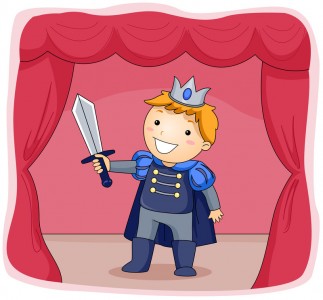The hero is the protagonist – the one who carries the weight of the story. A tale can have more than one main character (in some cases like Psycho, there can be a change of protagonist in the middle of the story). When there’s more than one protagonist, they can act in two different ways.

Plural – They share the same goals and suffer the same misfortunes or enjoy the same rewards in their struggle to achieve them. Such is the case of Robert Aldrich’s film The Dirty Dozen or Enid Blyton’s Famous Five..
Multiple – They have individual goals, rewards and misfortunes. Sometimes, what’s good for one can be bad for another. Such main characters appear in George R. R. Martin’s A Song of Ice and Fire.
Regardless of the number of protagonists a story has, they must be appealing to the readers. If they like them and identify themselves with them, they are more likely to be interested in your story. Let’s take a look at the characteristics of unforgettable protagonists:
1. They are different and unique.
Whether or not a story has more than one protagonist, all of them should have specific features. Their uniqueness can make them complement each other and act like a team, but it can also lead to conflict between them (Remember that conflict is good for a writer – no conflict, no story!).
2. They are consistent.
Main characters must be consistent with their personality. Nothing is more annoying than those characters whose actions are not in line with their usual behavior (without prior notice in the storyline). For example, you wouldn’t expect an altruistic and unselfish character to be unpleasant to an old man who asks him to give up his seat on the bus.
3. They are surprising.
Your protagonists must be consistent, but that doesn’t mean that all of their actions are foreseeable. Even when they behave according to their personality or background, there’s still room for surprise.
4. They are contradictory.
Your characters will be more realistic if they occasionally contradict themselves or experience internal conflicts. We all like (and are positively surprised by) characters with doubts or moral dilemmas because we tend to empathize with them. That makes the reading experience engaging and rewarding.
For example, in The Count of Monte Cristo (spoiler Alert! If you haven’t read this book, jump straight to the next point or start reading Dumas’ masterpiece), when Edmond Dantes starts to feel affection for his enemy’s son, there’s a strong internal conflict between his desire for revenge and his feelings. It’s one of the most compelling parts of the novel.
5. They are active.
Action, like conflict, is fundamental. Your protagonists must experience internal or external changes; there must be conflicting situations that push them into action.
6. They must have motivation.
Your protagonists can have any motivation, goal, or dream because all of them are the result of a universal feeling such as love, power, revenge, loyalty, fight for survival, etc. Besides, without motivation, there’s no reason for action.
At this point, I must tell you there are two types of motivation: conscious (the protagonists know they’re going after something) and unconscious (the heroes pursue a goal without being aware of it, and they usually gain in maturity once they achieve their objective).
For example, in Star Wars, Han Solo’s conscious motivations are selfish (money and saving his own skin), but when the moment of truth arrives (you really get to see the true nature of people when they are under pressure), he risks his life to save his friends. This unconscious motivation is what makes him evolve into a rebel hero.
7. They have moral values.
Main characters should behave according to a moral code, but this doesn’t mean they have to be a saint. What’s moral for one character might not be for another character.
As a writer, you must establish your protagonists’ limits and moral code so they act accordingly. That will help you develop potential internal conflicts without losing consistency.
8. They are imperfect.
I don’t know about you, but perfection bores me. I like characters with imperfections, obsessions, and/or traumas (without exaggerating). That’s what makes them human and appeals to the empathy of the readers.
For example, Superman would be perfect if not for the fact that some authors have emphasized his emotional fragility. Kryptonite is also one of his weak spots, but it’s much less threatening than his sense of loneliness (he’ll always be a weird and different being), his longing to fit in, and the weight of his responsibility (always afraid of not being able to be on time or be everywhere at once). His vulnerability is what makes me admire Superman. We may not know what it’s like to be an alien with superpowers, but we can all understand his emotions.
9. They are witty.
It’s not an essential feature, but it’s always welcome. This doesn’t mean they should be geniuses or have a clever response to every question (in fact, that might make them appear pretentious). However, a bit of intelligence or wit will make the readers smile.
10. They are surrounded by mystery.
Last but not least, there’s nothing more appealing than mystery. Knowing everything about a protagonist from the beginning of a book is like talking to people who tell you all about their lives in five minutes after meeting you for the first time. When we are interested in someone, we want to discover that person’s uniqueness little by little in order to enjoy his or her air of mystery, and therein lays the magic.
Related Posts:
How to Write a Short Story
How to Write Character Sketches
How to Present Your Characters
 This site uses cookies. By continuing to browse the site, you are agreeing to
This site uses cookies. By continuing to browse the site, you are agreeing to 



There are no comments in this entry. Go ahead and leave yours!